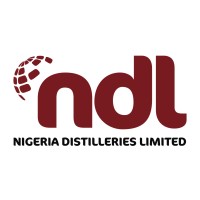By Henry Uche
As tensions between Iran and Israel escalate and shake global markets, players in Nigeria’s insurance industry are watching closely.
With rising oil prices, volatile trade routes and mounting geopolitical uncertainty, the sector faces a legion of risks and opportunities.
From potential surges in premiums to shifts in underwriting patterns and increased demand for specialised cover, tongues wag as to what is truly at stake for Nigeria’s insurers in this unfolding Middle Eastern crisis.
While the above simmers, there is also the desire of the federal government under the administration of President Bola Tinubu to transform Nigeria into a one trillion dollar economy by the year 2030.
As various sectors roll their sleeves and mount the plough, few expect the insurance sector to play a leading role, certainly not in a country where insurance remains largely unpopular and is often dismissed by millions of Nigerians, unlike the more widely embraced banking industry.
Yet, for those within the industry, insurance is far from peripheral. It stands as the bedrock of business continuity and an indispensable pillar of the broader economy, too critical to be ignored or underestimated.
An insurance and development expert, Mr. Samuel Adekunle, whole commenting on the brewing middle east conflict, said Nigeria’s insurance industry stands at a pivotal moment as the ugly situation reshape global risk dynamics.
For Adekunle, who is also a public affairs analyst, the escalating conflict between Israel and Iran—coupled with the potential reimposition of U.S. travel restrictions under a possible Donald Trump administration—presents both serious threats and strategic opportunities for Nigeria’s insurance industry. While the geopolitical landscape grows increasingly unpredictable, these developments are forcing the local insurance sector to recalibrate and adapt swiftly to global realities.
He observed that the Middle East crisis has already caused crude oil prices to surge by over 15 per cent in recent months, setting the stage for complex consequences within Nigeria’s insurance space. According to the National Insurance Commission (NAICOM)’s Q1 2024 report, the Marine and Aviation segment generated N32.7 billion in gross premiums—10 per cent of the total non-life market. However, it posted a retention rate of just 42.2 per cent, the lowest across all insurance classes. This heavy reliance on international reinsurance makes the sector highly susceptible to global repricing shocks.
“Rising fuel costs are already translating into imported inflation that directly impacts insurance operations,” Adekunle noted. “Higher costs for petrol, diesel, and aviation fuel inevitably lead to increased claims in motor, logistics, and aviation insurance, as replacement and repair costs escalate astronomically. The ripple effects extend beyond direct fuel costs, affecting the entire supply chain and pushing up operational expenses across multiple insurance lines.”
He explained that international reinsurance markets are reacting to these heightened uncertainties by adjusting premiums upward. “With marine insurance showing the lowest retention capacity at 42.2 per cent in Q1 2024—compared to the industry average of 54.2 per cent—the sector is particularly vulnerable to reinsurance market volatility. Industry experts project that aviation insurance premiums could hit a 20-year high in 2024, when Q4 data is eventually published, driven by geopolitical concerns and increased multinational demand.”
Beyond premium volatility, he noted that capital markets are also under pressure. Foreign portfolio investors are expected to adopt a more risk-averse posture, with potential capital flight from emerging markets like Nigeria. “Insurers with equity-heavy portfolios face the risk of asset devaluation, which could threaten their solvency margins and overall financial stability,” Adekunle cautioned.
The implications, he added, extend to trade-linked insurance classes. “Marine cargo and trade credit insurers face significant exposure as Middle East-related supply chains continue to suffer disruptions.” He referenced NAICOM’s Q1 2024 data, which showed that marine insurance recorded N6.5 billion in gross claims, with a net claims settlement ratio of 72.3 per cent—again the lowest across all insurance segments.
“This reveals deep-rooted vulnerabilities that could worsen as regional tensions escalate,” he said. “Moreover, with global marine insurers reporting a doubling in the average value of stolen shipments per incident—often due to more strategic and targeted theft—Nigerian marine insurers could face potential losses ranging between 15 per cent and 25 per cent above normal levels if the conflict persists.”
Yet amid these concerns, Adekunle sees promising windows of opportunity for forward-looking insurers. “Despite the risk landscape, the crisis could serve as a growth catalyst for certain insurance lines,” he emphasized.
The Oil and Gas segment remains the largest contributor to Nigeria’s non-life insurance market, with N132 billion in gross premiums in Q1 2024. This represents 40.4 per cent of total non-life premiums, up from 32.6 per cent in the same quarter of 2023. According to Adekunle, sustained high oil prices may fuel additional upstream investments, triggering greater demand for energy, engineering, and liability coverage.
“Nigerian firms with exposures in the Middle East are increasingly purchasing political violence, terrorism, and business interruption policies,” he said. “This is opening up entirely new premium lines for insurers who are agile enough to respond. Furthermore, the naira’s vulnerability to imported inflation has created renewed interest in currency hedging products. Insurers offering foreign exchange-linked annuities or investment-tied instruments may begin to attract clients seeking capital preservation amid global economic headwinds.”
Addressing the issue of renewed U.S. travel restrictions, Adekunle argued that this geopolitical dimension carries wide-ranging implications for Nigeria’s insurance landscape. “Such restrictions—often premised on concerns over documentation fraud and governance—could reshape market dynamics significantly.”
He highlighted the importance of the diaspora in supporting Nigeria’s insurance economy. “Remittances from Nigerians abroad fund many life and education insurance policies. Any disruption to travel and migration flows may weaken this critical lifeline, dampening demand for diaspora-focused insurance products.”
The reputational fallout from being listed among restricted nations could also raise red flags for international reinsurers and partners. “Compliance scrutiny may tighten for Nigerian insurers seeking global partnerships or offshore placements,” he warned. “Moreover, cross-border capacity development could take a hit, as travel restrictions may limit access to international actuarial training, executive education, and regulatory exchange programs.”
However, he sees a silver lining even in this potential constraint. “These disruptions could inspire positive structural reforms. Reduced emigration, for example, could increase demand for domestic health, life, and pension policies—especially among middle-class professionals who might otherwise seek opportunities abroad.”
He added, “Travel restrictions may also prompt insurers to innovate around service delivery. Digital onboarding, remote KYC processes, and virtual insurance advisory services could allow companies to serve overseas Nigerians who face travel bans but still want to insure loved ones at home. These advancements could ultimately position Nigerian insurers as continental leaders in digital insurance innovation.”
Adekunle believes that scrutiny from foreign governments could push the local industry towards stronger corporate governance and data integrity. “Regulatory bodies like NAICOM will come under pressure to enforce best practices. This may enhance Nigeria’s long-term competitiveness and credibility in global insurance markets.”
He pointed to the sector’s impressive recent performance: Nigeria’s insurance industry recorded N470.7 billion in gross premium income in Q1 2024—a 51 per cent year-on-year growth. Total assets stood at N3.3 trillion, reflecting a 36.9 per cent increase from the N2.4 trillion recorded in the same period in 2023. “This strong momentum, however, is threatened by the double blow of Middle East instability and possible diplomatic tensions,” he noted.
“The convergence of these geopolitical pressures creates both systemic risks and strategic inflection points for Nigeria’s insurance industry. Success will depend on adaptive underwriting capabilities, digital innovation, and proactive regulatory engagement. Insurers that can quickly pivot their strategies—particularly in energy, political risk, and diaspora-linked products—may not only survive but thrive in this challenging environment.”
He concluded with a strong note of optimism: “The key lies in viewing these disruptions not merely as obstacles, but as catalysts for transformation and growth. The insurance sector’s response to these challenges will likely determine its trajectory for years to come. Companies that embrace change, invest in technology, and uphold strong governance standards will be best positioned to capitalize on the hidden opportunities within these global uncertainties.
“As Nigeria’s insurance industry navigates these turbulent waters, the emphasis must remain on building resilience, fostering innovation, and maintaining the trust of policyholders and international partners alike. The path forward demands both defensive risk protection and bold, forward-looking strategies. The sector’s ability to adapt and flourish will stand as a testament to the resilience and ingenuity of Nigeria’s insurance professionals,” he encapsulated.


















Leave a comment